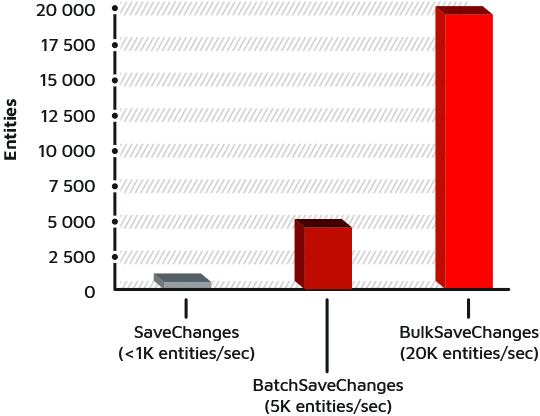Entity Framework Extensions Extend your DbContext with high-performance batch and bulk operations
Improve Entity Framework Performance
Use BulkSaveChanges to execute bulk operations when saving a large number of entities for maximal performance.
Use BatchSaveChanges to combine SQL generated by SaveChanges to reduce database round-trip.
Inserted entities/second


Supported Providers





